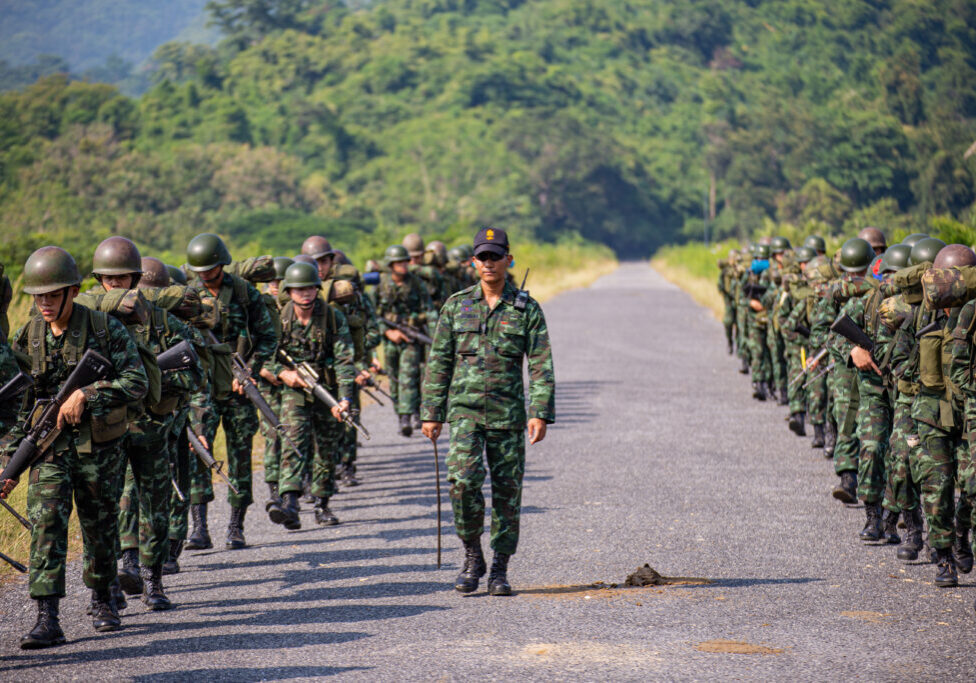Australia/Israel Review
Editorial: Nuclear Shortsightedness
May 3, 2017 | Colin Rubenstein
Colin Rubenstein
On April 22, in the context of the Australian state visit by US Vice President Mike Pence, North Korea ominously and outrageously threatened to target Australia with a nuclear strike should it follow the US lead in isolating Pyongyang.
This event should draw attention to the need for Australia to consider investing in ballistic missile defence – as Israel has done with the recent deployment of the David’s Sling system, the final component of its three-layer missile shield.
The threat should also recall some lessons from the Korean precedent as the Trump Administration struggles to orchestrate its policies regarding the Iran nuclear deal.
Though thousands of miles apart and directly affecting different regions, there are common threads between the North Korean and Iranian nuclear threats that go beyond the obvious.
While it’s true that Iran may sit today at a lower rung on the ladder of nuclear weapons development than Pyongyang, if the lessons of past failures to prevent North Korea from developing nuclear weapons are not heeded today, Iran has the potential to become an even greater threat to global peace and stability tomorrow.
At the centre of the latest news regarding the Iranian nuclear deal lies a seeming contradiction in US policy that, under closer scrutiny, is quite coherent.
On April 18, the US State Department certified that Iran had been complying with the terms of the 2015 framework agreement.
However, the next day, US Secretary of State Rex Tillerson criticised the deal, saying it “fails to achieve the objective of a non-nuclear Iran,” and “only delays their goal of becoming a nuclear state.”
Then, on April 20, US President Donald Trump himself accused Iran of “not living up to the spirit” of the deal, which he said was a “terrible” agreement that “shouldn’t have been negotiated the way it was negotiated.”
To reconcile this seeming contradiction, one must recall that when the Obama Administration approved the Iranian nuclear deal in 2015, critics maintained that, instead of blocking Iran’s path to a nuclear bomb, it could pave the way to it.
That was because, owing to the deal’s sunset clause, Iran could decide to abide by the agreement and still breakout to build a nuclear warhead within 10-15 years.
It was widely suggested that Iran might choose to do just that – at least during the first phase – as it was assumed Iran wouldn’t risk jeopardising the process of removing sanctions as well as cultivating increased trade with the West – which, Iran realises, will make it harder to re-impose sanctions should the need arise.
Regrettably, this scenario has largely come to pass. Billions of dollars of frozen funds have been released to Teheran. Iran’s most strategic export – oil – has ramped up, especially to Europe and Asia.
As critics warned, rather than use its deal dividend to improve the lives of Iranians and use new Western ties to usher in an era of prosperity and reform, Iran has instead increased its belligerency and widened its military footprint on the region.
It’s fighting proxy wars in Syria and Yemen through its Hezbollah and Houthi clients and manipulating the Iraq conflict to serve its Shia sectarian agenda.
Further west, Lebanon’s government has essentially conceded control of southern Lebanon to Hezbollah, which has stocked the area with over 100,000 missiles aimed towards Israel, in violation of UNSC 1701. Politically hamstrung, Beirut can no longer make independent security decisions without deferring to the will of Iran.
This understanding that Iran’s provocative actions outside of the nuclear deal must guide Western strategic policy came to the fore during US Secretary of Defence James Mattis’ recent visit to Israel, when he stressed the extent of Iran’s compliance over the nuclear deal “in no way mitigates against or excuses” its deplorable regional conduct of “mayhem, chaos and murder.”
In his remarks on April 19, Tillerson echoed Mattis’ sentiment, saying that “The evidence is clear: Iran’s provocative actions threaten the United States, the region and the world” while the Iran deal “represents the same failed approach to the past that brought us to the current imminent threat that we face from North Korea.”
If North Korea served as merely a taste of what a nuclear Iran might portend, it would be enough. Yet we know that the links between Iran and North Korea go much deeper. The two countries have a long history of military cooperation.
In addition, North Korea has proliferated its nuclear weapons technology to the Middle East in the past, directly assisting Syria to build an illicit reactor, which Israel pre-emptively bombed in 2007.
Experts believe that Iran is likely continuing to advance its nuclear program outside of the gaze of international inspectors by conducting its research activities in North Korea, and there is growing concern that Iran could take a shortcut to a nuclear weapon by obtaining an off-the-shelf warhead from North Korea.
Secretary of State Tillerson blames “strategic patience” – essentially delayed imposition of clear red lines for firm and decisive preventative action – for the failure to prevent North Korea from developing a nuclear bomb.
His April 19 declaration that the Trump Administration “has no intention of passing the buck to a future administration on Iran” is encouraging and is deserving of broad diplomatic support.
Indeed, the Trump Administration is right to make its review of the Iranian nuclear deal a top priority, especially now in the early phases of the deal’s implementation when the West still holds some leverage.
For the sake of the Australasian region, the North Korean nuclear threat must be contained. For the sake of the world, the Iranian nuclear threat must be neutralised, not only in the short term but the long term as well.
The stakes are too high, the risk too great, to leave such momentous matters to chance and wishful thinking, as appears to have occurred with Pyongyang.
Tags: Asia






